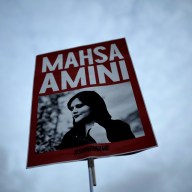Before cancer touched my own life, I rarely thought about the disease.
When I was 25, it nearly killed me. An advanced form of cancer had spread throughout my body. My chances of surviving were poor. Even more remote was the possibility that I’d be able to compete as a professional cyclist again.
After two surgeries and four rounds of chemotherapy, I was still alive. And because I had an excellent medical team, the support of my family and friends and a strong determination to live, the greatest days of my career and my life still lay ahead of me.
Thirteen years later, if I had to choose between winning the Tour de France and having cancer, I would choose cancer. I consider myself lucky for the experience, and because of that I feel a strong commitment to help everyone affected by cancer triumph over this disease.
Cancer touches every life on Earth. It is projected to be the leading cause of death worldwide this year, claiming more of us than AIDS, tuberculosis and malaria combined. Twenty-eight million people struggle with it and if current trends continue, the number of new cases could triple by 2030.
But in many parts of the world, we don’t talk about cancer. We hide it because we’re afraid we could lose our jobs or our friends. Some of us fear that our children will be sent home from school because their mom or dad has cancer. Many people believe cancer is contagious or that people who get cancer bring it on themselves. And the most common theme by far — a cancer diagnosis means certain death.
Molebatsi Pooe-Shongwe, founder of the South African cancer organization BreastSens, says that many people with cancer believe that when signs of their condition and its treatment become obvious, their communities will believe they have AIDS. Like cancer, this disease also brings moral judgment and persecution along with it.
Molebatsi illustrates the situation with a story: “A young woman refused treatment — mastectomy and chemotherapy because concern that breast loss will severely hinder her marriage prospects. She, by default, chose to die rather than face the ferociousness of stigma.”
Death by cancer is tragic. More tragic is losing a friend or a loved one when we could have saved them. We hope to inspire people to speak out about their experiences with cancer. If we unite, discrimination and ignorance cannot stand against us.
















